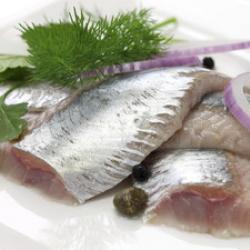Irregular verbs in German. Three forms of German verbs 3 forms of irregular verbs German geboren
Strong verbs form past tense forms by changing the root vowel - by ablaut. But different strong verbs have different root vowels, for example:
| infinitive | preterite | participle II |
|---|---|---|
| schreiben - write | schrieb | geschrieben |
| finden - find | fand | gefunden |
| nehmen - take | nahm | genommen |
| sehen- see | sah | gesehen |
| laufen - run | lief | gelaufen |
It turns out that the main forms of strong verbs need to be learned by heart. Having come to this conclusion, everyone somehow becomes thoughtful. It, of course, needs to be memorized, and of course, by heart. Don’t walk around Germany with your grammar always open or with a plastic circle-cheat sheet. “Moment mal...” - I supposedly needed Partizip II from such and such a verb...
And then everything goes differently. Some quite manage to learn everything, others limit themselves to the most common verbs, others periodically make some attempts (with an interval from several days to several years) and as a result, each time they put down the textbook with a sigh, because “it’s simply impossible to learn all this.” And this is quite natural. You might think that those who learned everything right away have the strongest will or the best memory. But I have met people with a developed will and excellent memory who once began to study German and still do not properly know strong verbs. It's not a matter of will or memory, but motivation. If you really need the language, you'll quickly learn everything you need to know, including the notorious strong verbs. If you need the language to some extent, you will learn the verbs to some extent. If you have no reason at all to invest any effort into it, you will only learn what naturally lingers in your memory.
In dictionaries and grammars, the basic forms of strong verbs are usually given in alphabetical order. It’s convenient for viewing, but for studying, it couldn’t be worse. Imagine that you are memorizing all the words from the dictionary in alphabetical order: a month - with the letter “A”, another - with the letter “B”, a third - with the letter “C” and so on. Just as in Conan Doyle’s story “The Red-Headed League,” the scammers gave a man the task of rewriting the Encyclopedia Britannica. So it is with a list of verbs in alphabetical order: natural resistance of the mind.
How then to approach this list? Very simple. Strong verbs are historically distributed not alphabetically, but according to ablaut rows, that is, according to certain patterns of change in the root vowel. For example:
Knowing this, you can easily form the basic forms of the verb bl ei ben - stay:bl ei ben-bl ie b-gebl ie ben.
And the strong verb heißen - to be called, to be called- here too? Unfortunately no! It historically belongs to a different series and forms the basic forms as follows:
For these verbs, the model is as follows: the vowel in the infinitive coincides with the vowel in participle II, and in the preterite it appears ie .
Therefore, it is most convenient to sort strong verbs into rows, as, in fact, they exist in the language. Seeing the diagram of each row, you can understand the principle of formation of the basic forms. And how many verbs from each row you will need - again depends on your motivation. Within each row, the verbs are arranged alphabetically, which will make it easier for you to find the right cases.
For good command of the language, all verbs are memorized. When studying rows of strong verbs properly, you need to spend some time (at least several days) to master each row, even with excellent memory. When you have mastered all the rows, test yourself - cover all forms except the infinitive with a sheet of paper and go through the rows in random order.
If you clearly do not need some verbs, then mark the most necessary positions in the list and learn only them. By the way, some very rarely occurring verbs are omitted from this list. On the other hand, don't be too quick to thin your list. For example, according to textbooks, “throw away” (about garbage, etc.) in German is wégwerfen (a strong verb with a separable prefix). Meanwhile, Germans very often say wégschmeißen - throw away(also a strong verb and also with a separable prefix). A good reason to learn both verbs.
In any case, you should teach it like this: “singen - sang - gesungen, springen - sprang - gesprungen”, etc., each time building a chain of three basic forms. Memorizing a list vertically is pointless!
Let us present the ablaut series of strong verbs. Some series are divided into subtypes a) or b) depending on the length or shortness of the vowel and other specific conditions. A short vowel is indicated by a bow (for example, ĭ), a long vowel is indicated by a colon (for example, i:). Verbs with separable and inseparable prefixes formed from those given below are not specifically considered. For example, abbiegen - go around forms basic forms like biegen - bend, verbieten - forbid- like bieten - suggest etc.
| infinitive | preterite | participle II | |
|---|---|---|---|
| 1 ROW | |||
| a)ei | ĭ | ĭ | |
| beisen | bite | biss | gebissen |
| bleichen | bleach | blich | geblichen |
| gleichen | resemble, be like | glich | geglichen |
| gleiten | slide | glitt | gegliten |
| greifen | grab grab | griff | gegriffen |
| leiden | suffer | litt | gelitten |
| pfeifen | whistle | pfiff | gepfiffen |
| reißen | tear, tear | riss | Gerissen |
| reiten | ride, ride | ritt | geritten |
| schleichen | steal | schlich | geschlichen |
| schleifen | polish | schliff | Geschliffen |
| schmeißen | throw, throw | schmiss | geschmissen |
| schneiden | cut | schnitt | geschnitten |
| schreiten | step | schritt | geschritten |
| splendid | prick, split | spliss | gesplissen |
| streichen | stroke, touch; paint | strich | gestrichen |
| streiten | argue | stritt | gestritten |
| weichen | give in; retreat | wich | gewichen |
| b)ei | i: (=ie) | i: (=ie) | |
| bleiben | stay | blieb | geblieben |
| gedeihen | prosper | gedieh | gediehen |
| leihen | borrow, borrow for a while | lieh | geliehen |
| meiden | avoid | mied | gemieden |
| preisen | praise | prices | gepriesen |
| reiben | rub | rieb | gerieben |
| scheiden | separate(Hence sich scheiden - divorce; participle II geschieden means divorced. Just like the verb scheiden, the verb entscheiden (sich) forms the main forms - decide).) | schied | geschieden |
| scheinen | shine seem | schien | geschienen |
| schreiben | write | schrieb | geschrieben |
| schreien | scream | schrie | Geschrien |
| schweigen | keep silent | schwieg | geschwiegen |
| speien | spit(Verb speien - spit used in classical literature. In everyday life they usually say spucken (this is a weak verb).) | spie | Gespien |
| steigen | get up | stieg | gestiegen |
| steigen | drive; drive do something | trieb | getrieben |
| verzeihen | forgive | verzieh | verziehen |
| weisen | indicate | wies | gewiesen |
| 2 ROW | |||
| a)ie | o: | o: | |
| bigen | bend | bog | gebogen |
| biten | suggest | bot | geboten |
| erkiesen | elect(Verb of high style. In modern language, the meaning of “to choose, to choose” is conveyed by the weak verb wählen.) | erkor | erkoren |
| fliegen | fly | flog | geflogen |
| fliehen | flee | floh | geflohen |
| frieren | freeze | fror | gefroren |
| schieben | move, move away | schob | geschoben |
| verlieren | lose | verlor | verloren |
| wiegen | weigh; to weight | wog | gewogen |
| b)ie | ŏ | ŏ | |
| fließen | flow | floss | geflossen |
| genius | enjoy | genoss | genossen |
| gießen | pour | goss | Gegossen |
| kriechen | crawl | kroch | gekrochen |
| riechen (nach etw.) | smell something | roch | gerochen |
| schießen | fire | schoss | Geschossen |
| schließen | lock; conclude | schloss | geschlossen |
| siden | boil; boil | sott | Gesotten |
| sprießen | sprout | spross | gesprossen |
| triefen | hit (target) | troff | getroffen |
| verdrießen | annoy | verdross | verdrossen |
| c) e/a/au/o/ä/ö | ŏ/o: | ŏ/o: (depending on verb) | |
| bewegen | move | bewog | bewogen |
| fechten | fencing, fighting | focht | gefochten |
| flechten | weave | flocht | geflochten |
| gäen | wander (about beer, etc.) | gor | gegoren |
| heben | lift up | hob | Gehoben |
| löschen | extinguish, extinguish | losch | geloschen |
| lügen | lie, lie | log | gelogen |
| melken | milk | milk | gemolken |
| pflegen | to look after, groom; be in the habit of | pflog | gepflogen |
| quellen | to flow, to flow | quoll | gequollen |
| saufen | get drunk | soff | gesoffen |
| saugen | suck | sog | gesogen |
| schallen | sound, resound | scholl | geschollen |
| scheren | cut | schor | geschoren |
| schmelzen | melt, melt | schmolz | Geschmolzen |
| schnauben | sniffle, snort | schnob | geschnoben |
| schwellen | to swell | schwoll | geschwollen |
| trügen | deceive | trog | getrogen |
| wägen | weigh | wog | gewogen |
| 3 ROW | |||
| a) ě (+ r/l + consonant) | ă | ŏ | |
| bergen | hide(For verbs of this and subsequent rows (and some verbs of 2 rows) in the 2nd and 3rd liters of the present tense e > i(du birgst, er birgt; du giltst, er gilt, etc.).) | barg | geborgen |
| gelten | to be valid, to be considered, to be reputed | galt | gegolten |
| schelten | scold | schalt | gescholten |
| stechen | sting, prick | stach | gestochen |
| sterben | die | starb | gestorben |
| verderben | spoil | verdarb | verdorben |
| werben | recruit, attract | warb | geworben |
| werfen | throw | warf | geworfen |
| b) ĕ | a: | ŏ | |
| brechen | break, break | brach | gebrochen |
| erschrecken | frighten | erschrak | erschrocken |
| sprechen | talk, talk | sprach | gesprochen |
| treffen | meet | traf | getroffen |
| c) e: | a: | o: | |
| befehlen | order | befahl | befohlen |
| empfehlen | recommend | empfahl | empfohlen |
| gebären | give birth, give birth | gebar | geboren |
| commen | come | kam | gekommen |
| nehmen | take | nahm | genommen |
| stehlen | steal | stahl | gestohlen |
| 4 ROW | |||
| a) ĭ (+ nn/mm) | ă | ŏ | |
| beginnen | start off) | begann | begonnen |
| gewinnen | win, win | Gewann | Gewonnen |
| rinnen | run, flow, flow | rann | geronnen |
| schwimmen | swim | schwamm | geschwommen |
| spinnen | spin | spann | Gesponnen |
| b) ĭ (+ n + consonant) | ă | ŭ | |
| binden | bind | band | gebunden |
| dringen | push insist | drang | gedrungen |
| finden | find | fand | gefunden |
| Gelingen | succeed | gelang | gelungen |
| klingen | sound | klang | geklungen |
| ringen | fight | rank | gerungen |
| singen | sing | sang | Gesungen |
| sinken | go down fall | sank | Gesunken |
| springen | jump | sprang | gesprungen |
| stinken | stink | stank | gestunken |
| trinken | drink | trunk | getrunken |
| verschwinden | disappear | verschwand | verschwunden |
| zwingen | coerce, force | zwang | gezwungen |
| 5 ROW | |||
| a) e: | a: | e: | |
| geben | give | gab | gegeben |
| genesen | recover | genas | genesen |
| geschehen | happen, occur | geschah | geschehen |
| lesen | read | las | gelesen |
| sehen | look, see | sah | gesehen |
| b) ĕ | a: | ĕ | |
| essen | There is | aß | Gegessen |
| fressen | eat (about animals); eat | fraß | gefressen |
| messen | measure | maß | gemessen |
| vergessen | forget | vergaß | vergessen |
| trten | step, step on | trat | getreten |
| c) ĭ | a: | e:/ĕ | |
| bitten | ask | bat | gebeten |
| liegen | lie | lag | gelegen |
| sitzen | sit | saß | gesessen |
| 6 ROW | |||
| ă/a: | a: | ă/a: | |
| backen | bake(For verbs of the 6th and 7th rows in the 2nd and 3rd liters of the present tense a > ä(du bäckst, er bäckt, etc.).) | buk | gebacken |
| fahren | drive | fuhr | gefahren |
| graben | dig | grub | gegraben |
| laden | load, load | lud | geladen |
| schaffen | create(It is necessary to distinguish between the strong verb schaffen (schuf - geschaffen) - create, create and the weak verb schaffen (schaffte - geschafft) - succeed, succeed.) | schuf | Geschaffen |
| schlagen | beat | schlug | geschlagen |
| tragen | carry, wear | trug | getragen |
| wachsen ["vaksən] | grow | wuchs | gewachsen |
| waschen | wash, wash | wusch | gewaschen |
| 7 ROW | |||
| a/au/o/u/e | (=ie)/ĭ | a/au/o/u/e (= infinitive vowel) | |
| blasen | blow | blies | geblasen |
| braten | fry | briet | gebraten |
| fangen | catch | fing | gefangen |
| fallen | fall | field | gefallen |
| hängen | hang(One should distinguish between the strong verb hängen (hing - gehangen) - hang and the weak verb hängen (hängte - gehängt) - hang) | hing | gehangen |
| halten | hold | hielt | gehalten |
| hauen | chop | hieb | gehauen |
| heißen | to be called, to be called | hieß | geheißen |
| lassen | leave, allow | ließ | gelassen |
| laufen | run | lief | gelaufen |
| raten | advise | riet | geraten |
| rufen | shout, call | rief | gerufen |
| schlafen | sleep | schlief | Geschlafen |
| stoßen | push | stieß | gestoßen |
The spelling of the preterite and participle II forms has developed historically. Forms with short vowel + ss used to be written with ß (you can still find such spellings in books published before 1998). The letter ß is preserved where it is preceded by a long vowel or diphthong. Sometimes the preterite and participle II forms differ from the infinitive: for example, schneiden ( cut) - schnitt - geschnitten. In some cases there are serious discrepancies: for example, hauen ( chop) - hieb - gehauen. However, those who have studied English accept English spelling and forms of English irregular verbs such as write - wrote - written, catch - caught - caught, etc. as a given. We must approach the German series of strong verbs in exactly the same way!
Conjugate verbs in many languages
There are many verbs in every language, and how to conjugate them can vary from language to language. That's why it's important to have a user-friendly tool that shows you complete verb conjugations, making learning faster and more efficient. Whether it's a regular or irregular verb, bab.la conjugators have an extensive database of verbs in all grammatical forms. You will quickly find the one you need. On the main page you can see an overview of all available languages and once you select the one you need, you can start learning how to conjugate verbs. What's more, you can even view a list of the most commonly used verbs in the language you're learning.All verb forms at a glance
If you're looking for a specific verb that doesn't appear on this list, you can search for it in another way. Simply select the given language and enter the verb you are looking for in the search bar. At the top of the page you will see the infinitive form and two other forms of the verb, different depending on the language, and then the full conjugation in all tenses and moods (indicative, conditional and imperative). Below you can find the infinitive, participle, gerund or other forms of the verb in question and the translation into your source language.Verb conjugation without problems
You may have heard that verb conjugation is one of the most difficult parts of grammar in many languages, but you need to learn it if you want to speak fluently in a given language. However, verb conjugation is easier than you think. Regular verbs are quite simple in most languages, so you'll learn them very quickly. On the other hand, irregular verbs are a different story, but that doesn't mean that learning to conjugate them is an impossible mission. Like everything in life, it is a matter of practice and time. As long as you really want to learn a foreign language and you have useful tools, this goal is very close!German 3 verb forms are the most important topic when learning this language.
In German, verbs have 3 special forms. These three basic forms underlie the formation of all temporary forms. So, let's list these forms.
Infinitiv or indefinite form of the verb, then Imperfect - the form of the past tense, namely the indicative mood. And finally, Partizip II is also a form of the past, but already in the subjunctive mood.
For those who are interested in the topic of German language 3 verb forms, we also recommend reading the materials:
Let's start with the infinitive form. The indefinite form or infinitive is the form of the verb found in the dictionary. Most often in German, this form of most verbs ends in “en”.
This is the easiest form, because nothing in it requires changes. The verb is in the infinitive form when:
It is not the main verb and stands at the end of the sentence, while the main or semantic verb changes the ending, and the second verb remains unchanged.
- used in the present tense when politely addressing “Sie” or to many persons (meaning an expression like “wollen wir...”).
- and also when using some infinitive constructions.
The table presents six verbs with translation and example. In this case, all verbs in sentences are in the infinitive form.
The second main form is the form in the imperfect. “Imperfekt” is the name of the easiest past tense in German. Most often it finds its application in literature. It is also used with Plusquamperfekt for sentences reflecting actions in the pre-past tense.
Here, out of all the verbs, a separate group can be distinguished. These are the so-called compound verbs. The rest are called simple. Simple ones form their form by adding a suffix, and strong ones by changing the root vowel.
The first two verbs, malen and tanzen, are simple verbs that form their imperfect form by adding the ending “-te”. The next four verbs are conjugated as strong verbs. A distinctive feature of a strong group of verbs is the change in the root vowel at the root of the word.

The last form, Partizip II, is most often used to form the complex past tense. All weak verbs add the prefix “ge” and the suffix “t” to form this form. Strong verbs, as in the formation of Imperfekt, change their root vowel, but, like weak ones, they add “ge” and most often the suffix “en”. Forms of verbs in the imperfect and Partizip II with strong verbs need to be known by heart.
It should be noted that some verbs omit the prefix “ge” when forming the third form.
This happens if they have either one of the inseparable prefixes (note the verb verstehen in the table) or a special suffix "-ieren" (for example, Haben Sie vorgestern meine Hausaufgabe korrigiert?)
The table below shows the given tense forms for the verbs in question and provides simple examples using the perfect.

So, as you can see, the topic of German 3 verb forms will always be in demand when using any tense.
When learning German, special attention is paid to verbs. This part of speech is mandatory when constructing a German sentence, and also has other, no less important, functions. A verb is a part of speech that denotes the state or action of an object.
Unregelmäßige Verben
All German verbs morphologically can be divided into weak, strong and incorrect. It is irregular verbs that cause the greatest difficulty in learning.
Irregular verbs are those that differ in the way they form their basic forms from strong and weak verbs.
Interesting! Recently, the boundaries of the concepts of “strong” and “irregular” verbs in the German language have become quite blurred. Often, to simplify the learning process, all German verbs are divided into only two groups:
- Weak, the formation of the main forms of which can be clearly classified;
- Other, in the formation of Imperfekt (Präteritum) and Partizip II which usually have difficulties. This category includes both strong verbs and irregular verbs. The main forms of verbs in this group are recommended to be learned by heart. For greater convenience, there is a summary table of the conjugation of strong and irregular verbs in the German language.
But! Strong verbs are not irregular because... They can be classified according to the method of formation of their basic forms.
Irregular verbs of the German language can be divided into three subgroups:
|
First subgroup |
Second subgroup |
Third subgroup |
|
kennen (to know) |
können (to be able) |
|
|
nennen (to call) |
müssen (to be due) |
haben (to have) |
|
brennen (to burn) |
durfen (to be able) |
gehen (to go) |
|
rennen (to run) |
wollen (to want) |
werden (to become) |
|
denken (to think) |
wissen (to know) |
stehen (stand) |
|
senden (to send) |
sollen (to be obliged) |
tun (to do) |
First subgroup
Verbs of this subgroup form basic forms according to a weak principle, but they are characterized by a change in the root vowel e on A V Imperfect And Partizip II:
Be careful!
In the verb mögen, the root consonant is also replaced g on ch. In the verb wissen the root i in Imperfekt and Partizip II changes to u:
In the present tense (Präsens) these verbs change as follows:
|
er |
|||||||
|
wir |
|||||||
Table of irregular verbs in German
|
Infinitive |
Präsens |
Imperfect |
Partizip II |
|
kennen (to know) |
|||
|
nennen (to call) |
|||
|
brennen (to burn) |
|||
|
rennen (to run) |
|||
|
denken (to think) |
|||
|
senden (to send) |
|||
|
wenden (to return) |
|||
|
können (to be able) |
|||
|
müssen (to be due) |
|||
|
durfen (to be able) |
|||
|
wollen (to want) |
|||
|
wissen (to know) |
|||
|
sollen (to be obliged) |
|||
|
mögen (to wish) |
|||
|
haben (to have) |
|||
|
werden (to become) |
|||
|
gehen (to go) |
|||
|
stehen (stand) |
|||
|
tun (to do) |
|||
|
bringen (bring) |
As we can see from the table, the number of irregular verbs in the German language is quite small. These words are very often used in communication, and some of them serve to form temporary forms. For example, the verb werden - to form the future tense (Futurum). Ich werde lernen. I will learn.
For convenience, the table is divided into three blocks. By memorizing just seven words every day, in just three days, without much effort, your vocabulary will be replenished with new useful words, without which full communication is simply impossible.
German verbs have three forms. These three forms are very important because they are used to form different tenses:
1st form: Infinitive, or indefinite form. Example: machen (to do)
2nd form: Präteritum, or simple past tense. Example: machte
3rd form: Partizip II, or past participle. Example: gemacht
(s) next to the verb, which can appear in the dictionary, indicates that this verb forms Perfect, Plusquamperfekt with the auxiliary verb sein .
With few exceptions, all verbs in German end in -en, so the 1st form of a verb (infinitive) is its stem + ending -en: mach en, sag en, lach en, lieb en...
Second form (Präteritum) for weak verbs usually formed by adding - te to the stem of the verb. That is, we remove the ending -en and add the ending -te: mach te, sag te, lach te, lieb te...
Third form (Partizip II) for weak verbsusually formed by adding a prefix ge- and endings - t to the stem of the verb. For example: ge mach t, ge sag t, ge lach t, ge lieb t...
Not so difficult at first glance. BUT these were the rules for weak verbs, and in German there is a lot strong (or irregular) verbs, whose forms are not formed according to the rules. They are needed memorize. For this you need a table and a lot of patience. Print it out and memorize a little every day.
Table of irregular verbs in German
Now let's take a quick look at what each verb form is used for.
First form of a German verb (infinitive):
- is in the dictionary
- used with modal verbs: Ich kann lesen. - I can read.
- used in infinitive phrases: Es ist zu kalt, so weit in den Wald zu gehen. - It's too cold to go that far into the forest.
- to form the future tense Futurum: Ich werde viel arbeiten. - I will work hard.
- when adding the article das, the first form sometimes becomes a noun: das Lesen- reading
When conjugating the infinitive, the present tense form Präsens is formed: Ich mache die Hausaufgabe. - I'm doing my homework.
Second form of the German verb (Präteritum):
- to form the simple past tense Präteritum (used in writing and books): Ich sagte das nicht. - I did not say that.
Third form of the German verb (Partizip II):
- to form the complex past tense Perfect (used in conversation): Ich habe so viel gelacht. - I laughed so much.
- to form the prepast tense Plusquamperfekt (used very rarely): Ich hatte so viel gelacht. - I laughed so much. (the difference with the previous one is that here the action happened even earlier)
- for education Passiv (passive): Das Buch wird verkauft. - The book is on sale.
Based on the description of the functions of the three forms of the German verb, it becomes clear that the most important forms are the first and third. They need to be learned first. But it’s best to learn the three forms together, like a counting rhyme.
Valeria Zakharova,





